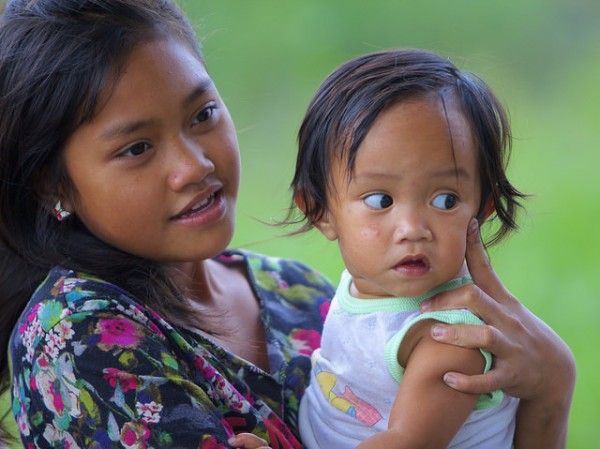
Women around the world leave their homes in economically disadvantaged, politically unstable countries in search of better income every day. One might assume that the act of venturing out—independent of husbands, fathers, and brothers—represents a break with traditional gender norms and unequal power dynamics between men and women. However, this is not always the case. In fact, Filipino women who travel overseas to do domestic work often frame their choice to leave in the opposite way—as an extension of their duties as wives, mothers, and daughters.
In 139 interviews with Filipino migrant domestic workers, Anju Mary Paul finds that these female migrants present their aspirations for work overseas as an extension of their duties as caregiving women in traditional Filipino households. Paul argues that the decision to migrate almost always begins with the individual woman who then presents the idea to family members for approval, anticipating potential resistance. In Paul’s interviews, family members opposed to migration may argue that working overseas does not follow traditional gender roles. For instance, parents argued it was not their daughter’s duty to work, but her husband’s. Other relatives criticized mothers for “abandoning their children.” In response, women often used the same gendered scripts: Mothers framed migration as the best way to be good mothers by providing money for their children’s education and well-being. Daughters emphasized their responsibility to care for parents and support younger siblings. And married women presented their potential earnings as a supplement their husbands’ incomes.
As exceptional as the Filipino females in this study may be, their case reminds us that even activities and choices that appear liberating for women can reflect and reproduce traditional gender norms and roles.

Comments